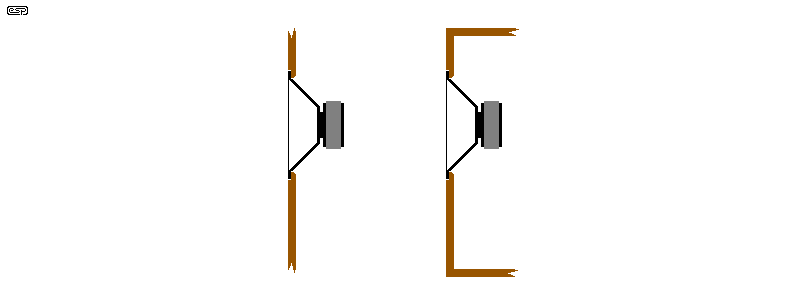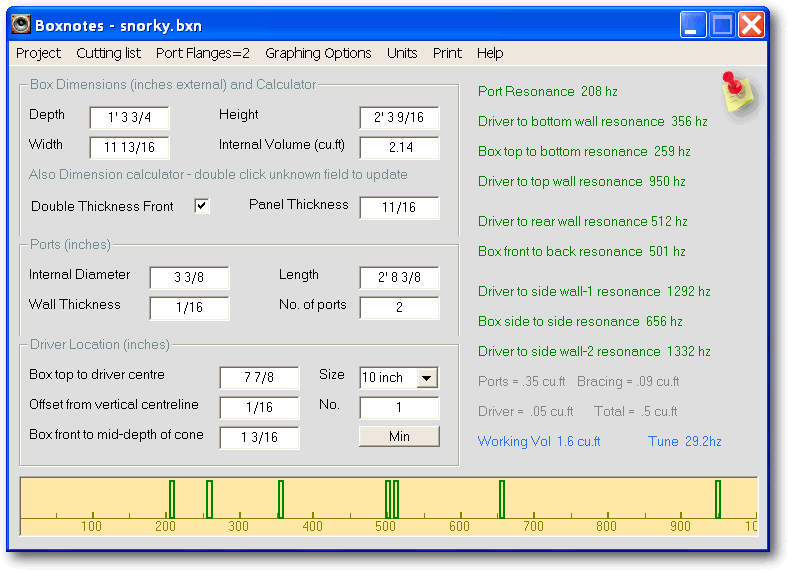

I am going to ignore these results and use one sealed enclosure and one ported enclosure to show the differences between the two.Ī sealed chamber will be used for the mid and a ported enclosure for the woofer.Ĭalculating box volume for a sealed box requires Vas, Fs, & Qts.
Speaker enclosure design guidelines drivers#
The EBP of our midrange and woofer drivers are calculated as:īoth values are well above 90 and call for Ported Enclosures. The tweeter in our example is already sealed and doesn't require an enclosure.
Speaker enclosure design guidelines driver#
Between 50 & 90 either type would work.Įfficiency Bandwidth Product (EBP) = Free Air Resonance (Fs) / Driver Electrical "Q" (Qes) Above 90~100 and a Ported Enclosure is recommended. If the EBP is less than 50, then a Sealed Enclosure is recommended. Ported calculator uses the formula below. Ported Speaker Box Calculator to determine if a sealed or a ported enclosure should be used. (with specifications provided by the manufacturer) are: The mid is 4" and the woofer is 6.5" in size, but this system is still capable of These 3 drivers might be smaller than what is expected of a typical 3-way system. This design is old and the characteristics of these drivers have since changed and/or been discontinued.


The same 3 used on the Crossover Tutorial. You should also review the Speaker Building Guideįor this example, I picked 3 ScanSpeak drivers for a 3-way speaker. This example of a designing a speaker box makes use of many of the calculators found on Designing and Building a Speaker Box Example


 0 kommentar(er)
0 kommentar(er)
